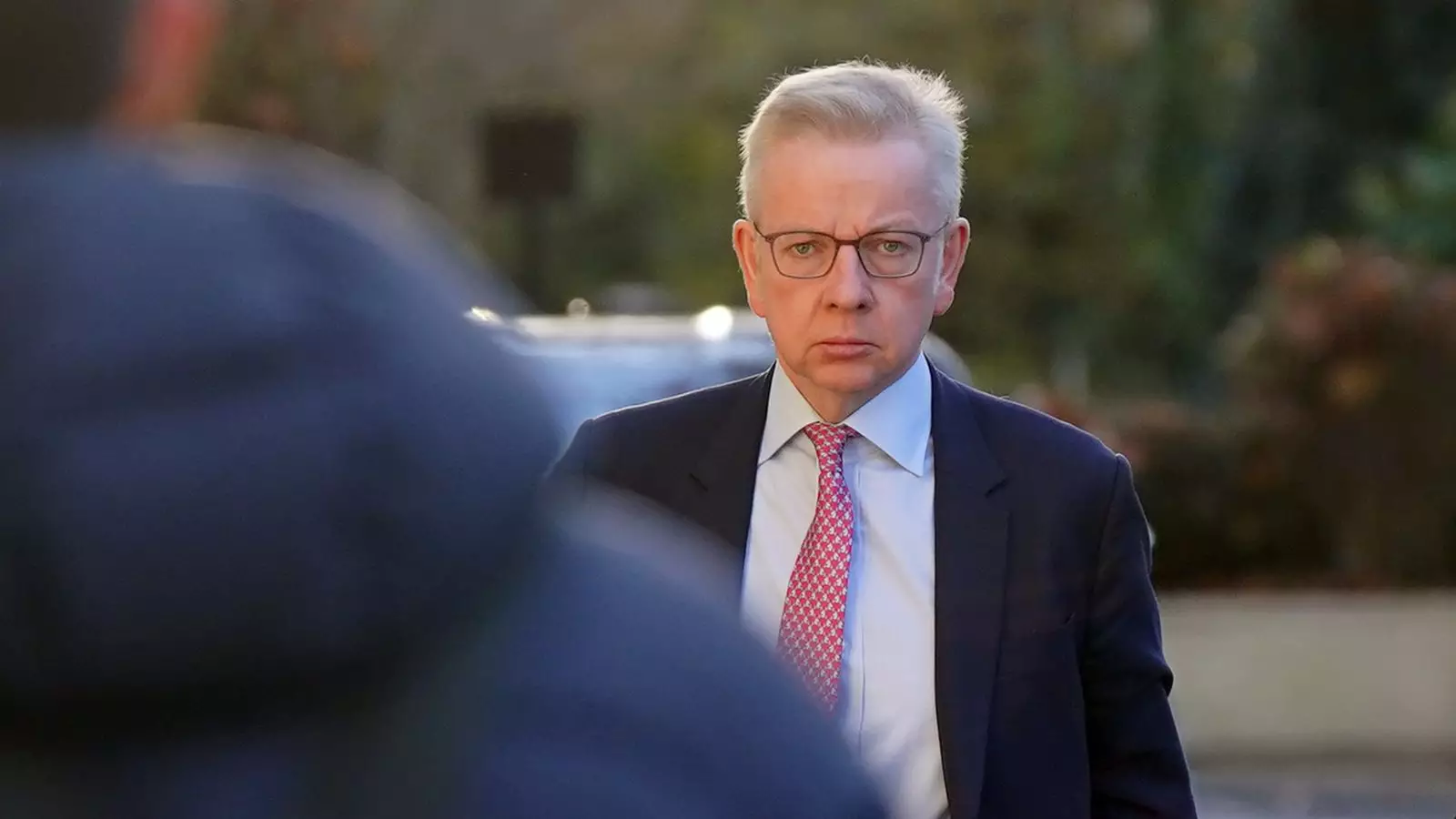The government is adamant that an early general election is unnecessary, as they express confidence in the approval of the controversial Rwanda bill by MPs. Michael Gove, a cabinet minister, recently stated in an interview with Sky News that the emergency legislation is a “tough but also proportionate measure.” While acknowledging the potential need for adjustments to the draft law, Gove emphasized the government’s commitment to addressing the concerns raised during its passage through the House of Commons. Despite Conservative infighting, the government remains optimistic about the future of the bill.
In a blow to Rishi Sunak, the revamped Rwanda bill has faced opposition from members of his own party. Conservative lawyers on the right have voiced concerns about the legislation’s effectiveness, claiming that it is not “sufficiently watertight.” This opens the possibility of lengthy legal challenges by illegal migrants attempting to remain in the UK. The European Research Group further argues that the current wording of the law will fail to achieve the desired outcome of deporting individuals who have made the Channel crossing to East Africa. Sir Bill Cash, a respected Conservative veteran, who chaired the so-called “star chamber,” hopes that the committee’s report will guide the government in making necessary amendments to the bill. Moderate Tories, on the other hand, are grappling with their stance, particularly regarding the forcible declaration of Rwanda as a “safe” country for asylum seekers.
Michael Gove, in response to the concerns raised by his Conservative colleagues, acknowledged the importance of their opinions, particularly those of legal experts like Sir Bill Cash. However, he maintained faith in the strength of the bill. Gove argued that the proposed legislation is both robust and aligned with the Supreme Court judgment. He emphasized that it addresses all the reasons previously used to prevent individuals from being sent to Rwanda. Nevertheless, the government finds itself defending the bill against mounting skepticism and opposition.
Former cabinet Minister David Davis expressed his support for the bill, considering it to be the toughest immigration legislation he has encountered. He endorsed the Prime Minister’s decision to take charge of the situation, asserting that the bill cannot be pushed any further. Davis also criticized the ex-home secretary, Suella Braverman, who has been critical of Sunak and the Home Office’s approach. Citing her year-long tenure as the head of the department, Davis held her partially responsible for the lack of progress in immigration policy. He cautioned his colleagues against political maneuvering in pursuit of a future leadership bid, highlighting that those who prioritize personal gain over the party’s future tend to fare poorly.
Labour frontbencher Liz Kendall highlighted the need for the government to develop a more effective plan that utilizes the funds allocated to Rwanda. She expressed frustration at what she perceives as the government’s lack of progress and its tendency to go around in circles with its plans. Despite the divisions within the Conservative Party, Kendall expects the bill to sail through its first parliamentary hurdle comfortably.
In the midst of the Rwanda bill controversy, tensions between the Conservatives and Labour reached a boiling point. Robert Jenrick’s resignation as immigration minister attributed the decision to the bill’s perceived weakness and the subsequent legal challenges it may invite. Prime Minister Boris Johnson, calling for Labour’s support for the emergency legislation, urged them to rise above political games. Meanwhile, Labour leader Sir Keir Starmer accused the Conservatives of “fighting like rats in a sack.” The political climate has become increasingly volatile, with both parties jockeying for support and attempting to gain the upper hand in the public eye.
The divisive Rwanda bill has stirred intense debate and criticism within the Conservative Party and has led to strained relations between the government and the opposition. As the bill faces its critical first parliamentary vote, key figures within the government and the party must address the concerns raised by their colleagues and evaluate the potential flaws within the proposed legislation. The decisions made in the coming weeks will shape not only the government’s immigration policy but also the future dynamics of British politics.

Leave a Reply